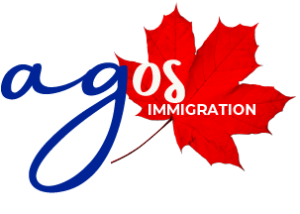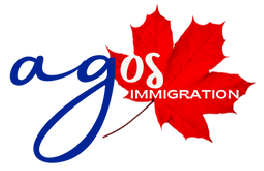The Francophone Minority Communities Student Pilot (FMCSP) is an introduced by Immigration, Refugees and Citizenship Canada (IRCC) on August 26, 2024. Unlike the traditional study-to-PR pathwa —which often requires students to graduate, secure a Post-Graduation Work Permit, gain Canadian work experience, and then compete for an invitation under Express Entry—the FMCSP provides a direct and predictable route to permanent residence (PR).
1. OVERVIEW OF HOW THE FMCSP WORKS
Cap & timeline: In its first year, IRCC accepted up to 2,300 study permit applications under FMCSP. The cap
for the second year is to be announced by August 2025.
Key benefits:
- Direct PR pathway after graduation without Express Entry.
- Settlement services available during studies.
- Exemption from caps on study permits.
- Lower French proficiency requirement: only NCLC 5 required (compared with NCLC 7 within Express Entry French draws.
- Adaptable financial thresholds based on community size (75% of the low-income cutoff).
2. ELIGIBLE COUNTRIES
Citizens from the following 33 countries may apply—mostly Francophone or partially Francophone nations in Africa, the Americas, and the Middle East:
| Benin | Djibouti | Morocco |
| Burkina Faso | Egypt | Niger |
| Burundi | Equatorial Guinea | Rwanda |
| Cabo Verde | Gabon | Saint Lucia |
| Cameroon | Guinea | São Tomé and Príncipe |
| Central African Republic |
Guinea-Bissau | Senegal |
| Chad | Haiti | Seychelles |
| Comoros | Lebanon | Togo |
| Côte Ivoire | Madagascar | Tunisia |
| Democratic Republic of the Congo |
Mali | |
| Republic of the Congo | Mauritania | |
| Dominica | Mauritius |
3. ELIGIBILITY REQUIREMENTS
- To qualify for the FMCSP:
- Be a citizen of an eligible country.
- Reside outside Canada when applying.
- Receive a letter of acceptance from a participating designated learning institution (DLI) explicitly stating you are applying under FMCSP, and that your study program meets criteria.
- Program must be:
- Full-time, post-secondary, at least 2 years, leading to a diploma or degree.
- Taught more than 50% in French
- French-language proficiency: NCLC 5 or higher in all four abilities.
- Financial proof: Sufficient funds for tuition and living expenses, as per IRCC’s adjusted thresholds.
- May need medical exams and police certificates if applicable.
- No provincial or territorial attestation letter (PAL) require.
4. PARTICIPATING SCHOOLS (DLIS)
Institutions outside Quebec with eligible FMCSP programs include (as of early 2025):
College-level institutions:
- Collège Boréal (multiple campuses, Ontario)
- Collège Communautaire du Nouveau-Brunswick (various NB campuses)
- Collège Éducacentre (Surrey, BC)
- Collège La Cité (Ottawa, ON)
- Collège Mathieu (Gravelbourg, SK)
Universities:
- Université de Moncton (NB)
- Université de Hearst (ON)
- Université de l’Ontario français (Toronto, ON)
- Université Laurentienne (Sudbury, ON)
- Université Saint Paul (Ottawa, ON)
- University of Ottawa
- University of Regina (Regina, SK)
- University of Alberta (Edmonton, AB)
- York University—Glendon Campus (Toronto)
- Others: Collège de l’Île (Prince Edward Island) is also listed.
5. FINANCIAL REQUIREMENTS BASED ON COMMUNITY SIZE
IRCC groups communities by population, each with a different minimum proof of living funds, excluding tuition:
| Group | Population Range | Funds Required for 1 person(approx.) |
| A | 500,000+ | CAD 20,635 |
| B | 100,000-499,999 | CAD 17,772 |
| C | 30,000-99,999 | CAD 17,662 |
| D/E | <30,000 or rural areas | lowe threshold, down to CAD 14,206 |
Amounts increase for accompanying family members.
6. ADVANTAGES OF FMCSP VS TRADITIONAL STUDY + CEC ROUTE
- Faster and certain PR path without Express Entry competition.
- No need to prove intention to leave Canada, reducing ambiguity for dual-intent applicants.
- Lower language threshold: NCLC 5 vs NCLC 7 in Express Entry French draws.
- Settlement support is offered during studies.
- Spouses/partners may qualify for open work permits, and dependent children may qualify for study permits or visitor visas.
- Financial thresholds are adapted, making affordable in smaller communities.
- No PAL requirement simplifies the application.
7. PATHWAY TO PERMANENT RESIDENCE After completing an eligible full-time diploma or degree:
- Requirements:
- Reside in Canada (outside Quebec).
- Hold valid temporary resident status.
- Completed eligible program via FMCSP.
- Program allows direct transition to PR, sometimes without job offer requirement, depending on IRCC guidance.
INTERESTED?
To apply:
- Secure acceptance from a participating DLI (letter must mention FMCSP).
- Ensure you meet language, financial, medical, and police requirements.
- Apply online through IRCC; PALs are waived.
- Study, graduate, then transition to PR under the pilot.
Not sure if you qualify? Contact us today to find out if you’re eligible and to discover which program or school best suits your background, goals, and immigration pathway.




